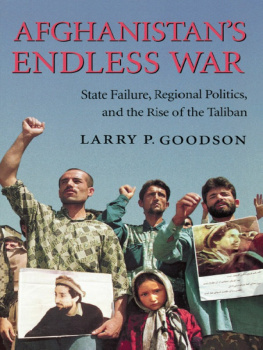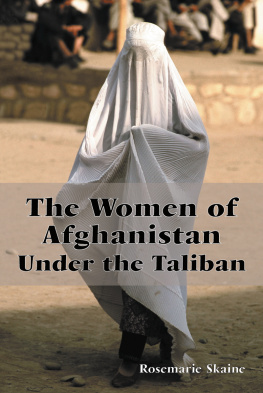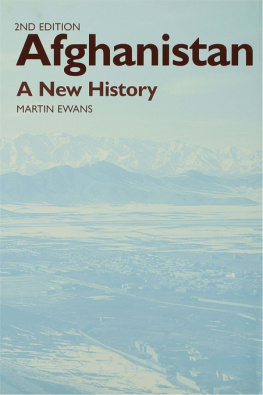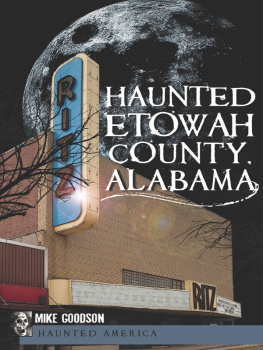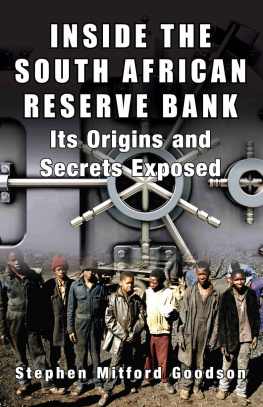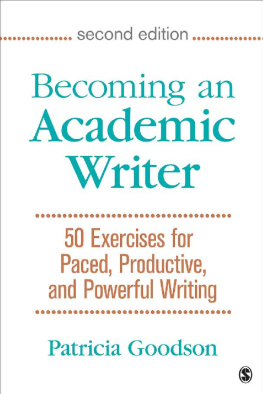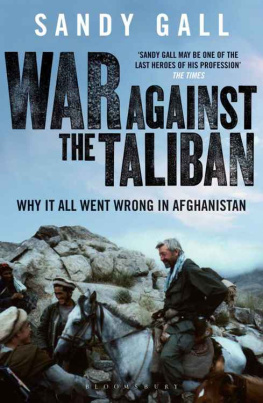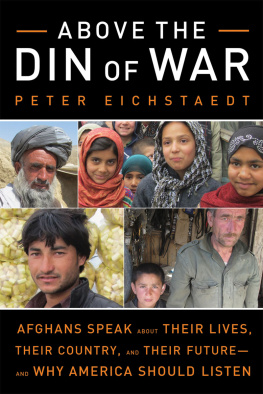For the Afghan people, in hopes that they soon know peace again
Copyright 2001 by the University of Washington Press
Printed in the United States of America
All rights reserved. No part of this publication may be reproduced or transmitted in any form or by any means, electronic or mechanical, including photocopy, recording, or any information storage or retrieval system, without permission in writing from the publisher.
Library of Congress Cataloging-in-Publication Data
Goodson, Larry P.
Afghanistan's endless war: state failure, regional politics, and the rise of the Taliban /
Larry P. Goodson.
p. cm.
Includes bibliographical references and index.
ISBN 0-295-98050-8 (alk. paper)
1. AfghanistanHistory1989
2. AfghanistanSocial conditions.
I. Title.
DS371.3.G66 2001
958.1dc21
00-060701
The paper used in this publication is acid-free and recycled from 10 percent post-consumer and at least 50 percent pre-consumer waste. It meets the minimum requirements of American National Standard for Information SciencesPermanence of Paper for Printed Library Materials, ANSI Z39.48-1984.
ISBN 978-0-295-98050-8 (electronic)
Preface
I first saw Afghanistan in 1986, from high in the Khyber Pass. I was standing at an outpost of the Khyber Rifles, the Pakistani military unit that has guarded that section of the frontier since the colonial days of the British Raj. As the Pakistani briefing officer explained the positions of Soviet and Afghan army units on the other side of the border, I saw hazy mountains in the distance. Behind those somewhat sinister hills lay the hidden land of Afghanistan, crossroads of Asia. I was hooked. My childhood fascination with the mysterious East had finally brought me to this barren outcropping, near where the regimental crests of British units that had served and bled in the area were proudly maintained by the Khyber Rifles, current masters of the terrain. On the other side of the border, Soviet troops were serving and bleeding in Afghanistan. Would their regimental crests be accorded the same respect one day in Afghanistan? I didn't think so.
I was in Pakistan in 1986-1987 on a fellowship from the American Institute of Pakistan Studies to collect data for my doctoral dissertation on the relationship between the Afghan refugees, Afghan fighters, and Pakistani support for both. I lived in Peshawar, capital of the Northwest Frontier Province of Pakistan, during that year. Peshawar was then, as it had often been before in its history, an Afghan town. Always the gateway to Central Asia, Peshawar was then teeming with Afghans, de facto headquarters of both a massive refugee relief effort and a grim resistance campaign against the Soviet occupation. Only the war correspondents know for sure, I suppose, but places like Peshawar in the mid-1980s must be rare. Everyone there was connected to the war, or so it seemed. The place reeked of intrigue (and also reeked literally, owing to the open sewers in the old city). Assassination and murder were commonplace as Soviet agents slipped across the border to destabilize Pakistan's support for the Afghans. Peshawar was actually the car bomb capital of the world that year, although Beirut received all the press coverage for such activity, and there was never a night when tracers did not arc over the city, always fired by persons unknown for reasons unknown.
I probably should not have been surprised, then, that so many people thought I was an agent of the US Central Intelligence Agency (CIA). I mean, there I was, driving around in an old jalopy that looked like the perfect candidate for a car bomb, dressed and groomed (long beard and everything) and to the best of my limited ability speaking like an Afghan, and people were supposed to believe I was a student? Right! With a flimsy cover story like that, and with so many real intelligence agents running around, it is little wonder that people thought I was one, too. I often wondered what the real CIA agents thought about my inadvertent impersonation.
Fortunately for the intelligence community, I really was only a student engaged in research, and I learned early on that some important things were happening in forgotten, distant Afghanistan. For example, as 1986 began, it was not entirely certain that the Soviet Union would not continue south through Pakistan to the Arabian Sea. By the time I left in 1987, it was obvious that the Soviet Union was going to lose in Afghanistan. Perhaps the full implications of that loss were not yet clearthat the defeat in Afghanistan would bring about the crumbling of the Soviet empire, although this happened with startling suddenness less than two years later when the withdrawal of Soviet troops from Afghanistan signaled to Eastern European intellectuals that the Brezhnev Doctrine was dead.
Another major lesson I learned was that Afghanistan was not going to return to its prewar peaceful stability once the Soviets were gone. I remember some of the expatriates at the American Club and the Red Cross-run Bamboo Bar (about the only places in town where you could get a drink) in 1987 running a betting pool on how long it would take the mujahideenthe Afghan rebelsto sweep into Kabul after the Soviet troops pulled out. Optimists were guessing days and weeks; pessimists thought the Najibullah regime would hang on longer than that, perhaps a few months. I never bet, and mores the pity, because I had come to realize that the war had deepened some powerful centrifugal forces within Afghan society even as it had discredited and destroyed the country's governmental institutions. Nonetheless, so long as the Soviets supported the communist regime in Kabul, even if from a distance, it would be impossible for the fractious mujahideen to win. The seeds of Afghanistan's state failure had been well planted by thenthe deepening of ethnic tensions, the rising of Islamist ideology, and the entrenching of a narcotics economy were all becoming the defining characteristics of the country. Virtually overnight, Afghanistan changed from the West's valiant ally, waging a frontline war against communist expansion, to a rogue state, home to drug traffickers, Islamist terrorists, and bloody warlords. I wish I had placed a bet, but even I, the most pessimistic man in Peshawar in 1987, could not have predicted that fourteen years later Afghanistan would still be wracked by a seemingly interminable civil war and that all the features that were emerging as problems during the 1980s would cause the collapse of the country in the 1990s.
In early 1992, shortly after the Soviet Union passed into the history books, the Najibullah regime fell, and groups of squabbling, cantankerous mujahideen descended on Kabul, which they almost immediately began to destroy as they fought among themselves over who would run the city and country. I went back to Afghanistan to see for myself the new rulers in action. One evening in August I found myself walking with several foreign journalists after curfew, trying to get back to my dwelling in the Wazir Akbar Khan section of Kabul from the UN compound, where I had had dinner. Suddenly, a couple of overloaded jeeps came roaring down the street and skidded to a stop next to us. Our momentary terror changed to relief when it turned out that the young soldiers of the new government merely wanted to offer us a ride. We clambered in. I sat in the back, wedged up tight against the Kalashnikov rifle of a soldier who was probably no more than fifteen or sixteen. As we bounced along, I realized that this boy-man represented a whole generation of Afghans who knew nothing but war. He smiled, happy at the prospect of the looming conflict, which in fact broke out a couple of days later, just after I had left Kabul to return to Pakistan. That the fight would be with rival Afghan factions divided increasingly along ethnic linesnot a holy war against foreign invadersseemed not to trouble my young friend. On my way back to Peshawar, over a rutted road destroyed by war and lack of maintenance, my bus passed through nineteen checkpoints, all representing different groups that controlled different sections of the road. Afghanistan was clearly a failing state whose political institutions did not function and where loyalties were being expressed on very local levels.

